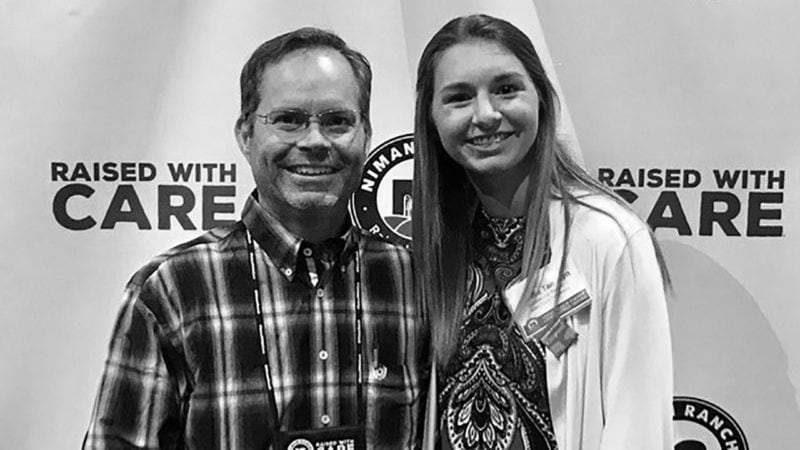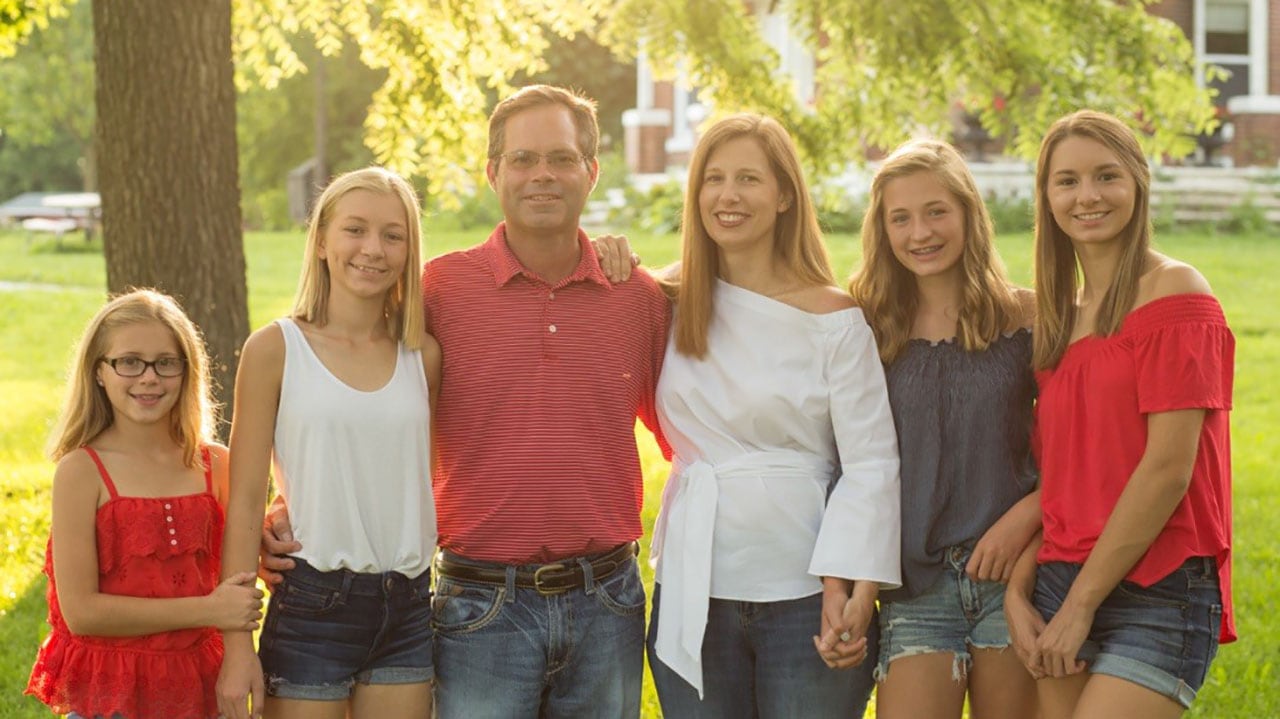Last Updated on August 21, 2020
John Tamblyn runs a family farm just south of Chicago, Illinois—but that hasn’t always been the case. Nearly ten years ago, a typical workday involved helping others find their dream home. Today, mother nature is his manager as John—a Niman Ranch farmer—and his family spend time caring for hogs and looking after the feed mill.
Family Tradition
After growing up on a farm that his grandfather started as a hobby in the 1920s, John decided to go into the family business. “My joke is that I didn’t make it very far in life,” says John. “I was born right here on the farm, and, despite a little detour, I’m still here today.”
John’s wife joined him on the farm where they raised hay and straw. After a few years—and four daughters—John and his wife chose a different path.
“We had four young girls, and farming had a lot of uncertainties,” says John. “There’s the price of fuel, the weather, the market. Risks are everywhere.”
A Different Path
John and his family left the farm when he decided to go into the real estate business. At the time, it seemed much less risky than farming—but the economic downturn of 2008 changed everything.
“When it comes to real estate, I enjoyed meeting people and helping them. I liked selling,” John remarks. “There were a lot of changes in the business after 2008. I figured, if I’m going to do something risky, it might as well be something I love.”
Back to the Farm
In 2010, it was back to the farm for the Tamblyn family. They joined the Niman Ranch farmer network, raising 42 hogs in their first year. The farm has grown from there, as the family has taken on more sows and started a non-GMO feed mill.
“Today, we have about 700 hogs, and we care about each one of them. We’re happy when they’re happy,” says John. “We always want what’s best for them. Every night, around 8:30, I go out and walk by all the different pens. Some are getting ready to go to sleep. It’s just really peaceful to watch them, to see them growing up and knowing they’re doing well.”
The Old-School Way
“I always joke that I should have had my farm in the 1960s, because that’s about how we do things today,” says John.
The Tamblyn family has chosen to raise their hogs differently than larger-scale conventional operations. With extra care comes extra challenges, like providing additional bedding for the hogs when they need to cool down, or working out in the heat in the middle of summer instead of using temperature-controlled buildings. “If you’re in a controlled building where it’s always 72 degrees whether it’s the dead of winter or the middle of summer, there’s not as much to worry about,” says John. “But that also means your hogs don’t get to go out in the sunshine. They don’t get to eat hay and grass.”
The Next Generation
John’s daughters have found their own special interests on the farm as well, from gardening to driving the skid loader. Oldest daughter Emilie is getting ready to start an MBA program at Iowa State University, where she’ll pursue her love of agriculture. “I would look forward to coming back home or starting a farm of my own one day,” says Emilie. “Knowing that we’re raising hogs in a sustainable way, and that we’re delivering high-quality products to the people who really want them, is rewarding.”
She’s looking forward to finding new ways to break through the barriers and common misconceptions about farming.
“Farming is a job of passion,” she says. “Keep it simple.”
Danielle Sirk is the Senior Copywriter at ButcherBox with a background in storytelling and food marketing. She believes in the power of meal prepping, poetry, running, and the great outdoors.




